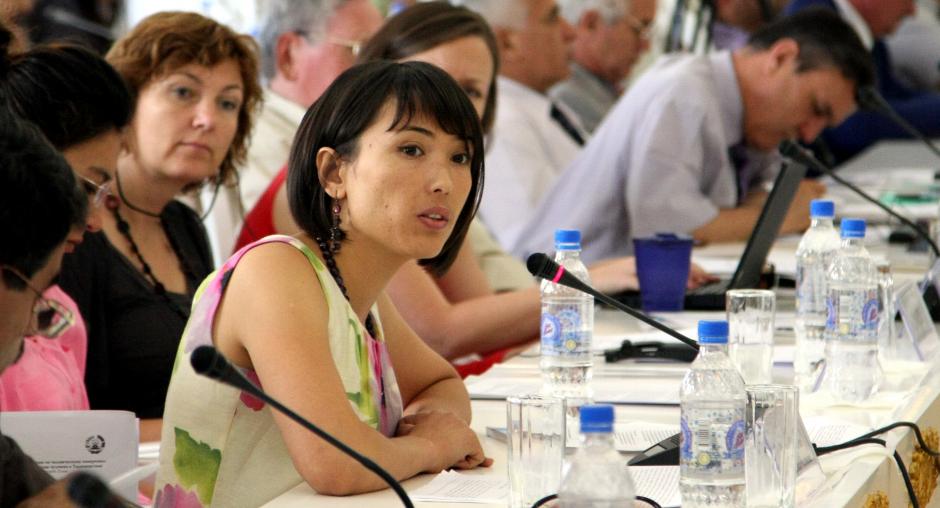Annual human rights meeting in Tajikistan brings together government and civil society representatives

DUSHANBE, 19 June 2014 – Tajikistan’s record on its OSCE human rights commitments was the topic of a two-day meeting of government and civil society representatives that concluded today in Dushanbe.
Some 165 participants, including around 50 government officials, more than 20 political party representatives and 22 participants from the country’s regions, came together for the event, which is the eight of its kind to be held. The meeting was organized by the OSCE Office in Tajikistan and the Department on Human Rights Guarantees within the Executive Office of the President. It was held ahead of the annual OSCE Human Dimension Implementation Meeting in Warsaw, which will take place over two weeks in September and October 2014, and is Europe’s biggest annual human rights event.
“We appreciate the constructive recommendations from our counterparts in civil society and political parties on how to find solutions for various problems and improve the human rights situation in the country,” said Muzaffar Ashuriyon, Head of the Department of Human Rights Guarantees. “I believe that if we manage to address these recommendations we will be able to fulfil our responsibilities and achieve our aims.”
The agenda for the meeting was developed in a collaborative process facilitated by the OSCE Office. This year participants discussed democratic standards for elections, the right to education, freedom of expression and freedom of the press, legal protection of labour migrants and the role of civil society in building democratic police institutions.
Last year’s recommendations, which largely focused on freedoms of association and assembly, rights of military conscripts, and compensation for serious human rights violations, were also discussed.
“The Preparatory Human Dimension Implementation Meeting is one of the most anticipated annual events for the human rights community in Tajikistan,” said Nigina Bakhrieva, a human rights expert and one of the moderators. “It serves as a safe platform where participants can openly discuss most serious issues related to observance of human rights in the country.”
